Here’s a fun dive into who’s packing up their golf clubs and heading for greener—and sunnier—fairways. From the Big Apple to the City of Angels, retirees are quietly hitting the road in search of lower costs, better weather, and more elbow room. Think of it like a Tinder swipe for your golden years: you’re ghosting your overpriced, tax-hungry hometown for a flawless match elsewhere. Grab your iced tea, kick back, and let’s uncover the 15 cities where retirees are saying “peace out” and where they’re casting their ballots for “hell yes.” Ready to see if your city made the list? Let’s roll.
1. New York City
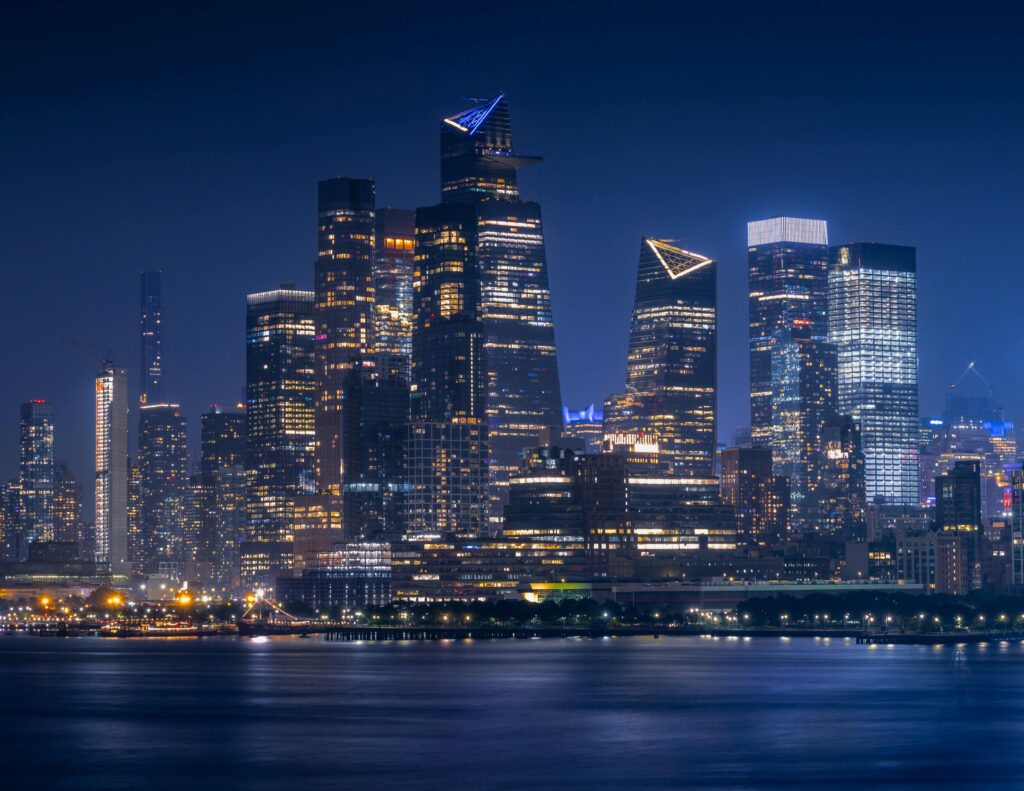
Retirees in New York City are sliding out of those cramped co-ops faster than you can say “subway delays”—and honestly, we don’t blame them. Sky-high property taxes and a cost of living that would make Scrooge McDuck gasp are pushing seniors toward sunnier skies. According to Business Insider, the city saw a significant net loss of retirees in 2022 as they traded bagels for beaches. Many of these ex–Big Apple dwellers are swapping bagel lines for guacamole lines in Tampa, Florida, where no state income tax feels like winning the lottery every April.
In Tampa, a milder climate and wallet-friendly housing market let retirees actually use their 401(k) instead of watching it evaporate. Golf courses, fishing charters, and beach boardwalks are practically in the parking lot of every senior community. And the social scene? You can literally meet new friends at shuffleboard tournaments or weekly pickleball meetups—no more subway sardine-can vibes. With outdoor dining popping up everywhere, brunch looks less like elbow-to-elbow chaos and more like a leisurely Sunday affair. Plus, with access to world-class medical centers, retirees get the best of all worlds: sunshine, savings, and serious peace of mind.
2. Los Angeles
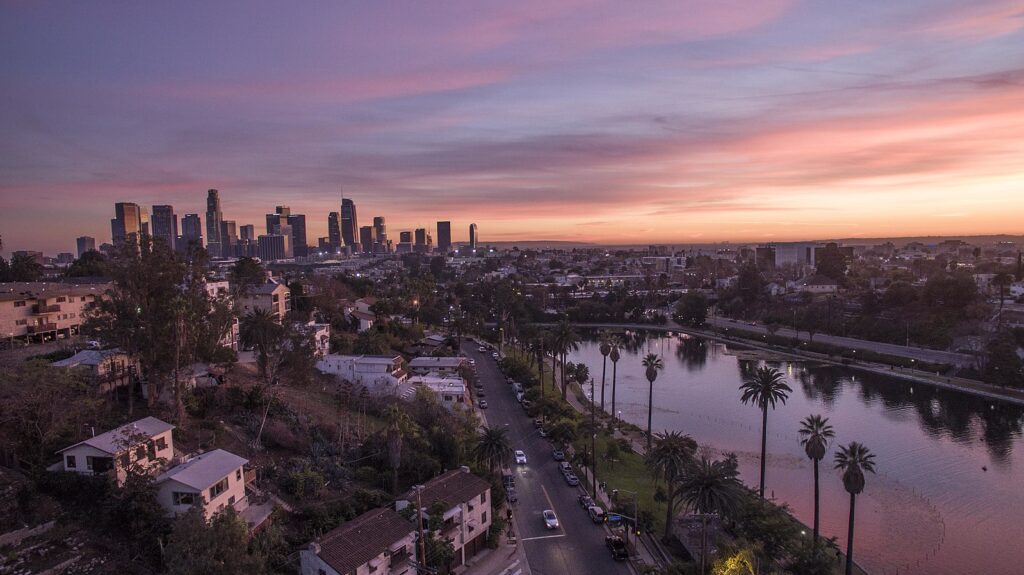
Angelinos trading their avocado toast for something a little more laid-back are on the rise—and it’s not just traffic woes wrecking their zen. Living expenses in Los Angeles are roughly 50% above the national average, making it tougher than ever on a fixed income. A recent deep dive by FinanceBuzz highlights that L.A. ranks among the top five urban exodus hotspots for retirees feeling the squeeze.
Enter Mesa, Arizona: the new desert darling where retirees are planting roots instead of watching their savings wilt under California’s 13.3% top income tax rate. Mesa’s warm, dry air is an instant mood lifter—no more rainy-day blues or mold issues in your basement. The cost of living in Mesa clocks in around 10% below the national average, meaning more money for golf club upgrades or impromptu road trips to the Grand Canyon. And the community vibe? Picture a mid-sized city where nobody blinks at daytime nap habits and “early bird” specials are a nightly ritual. Plus, with healthcare facilities tailored to seniors, Mesa is serving up peace of mind alongside its endless sunsets.
3. Chicago
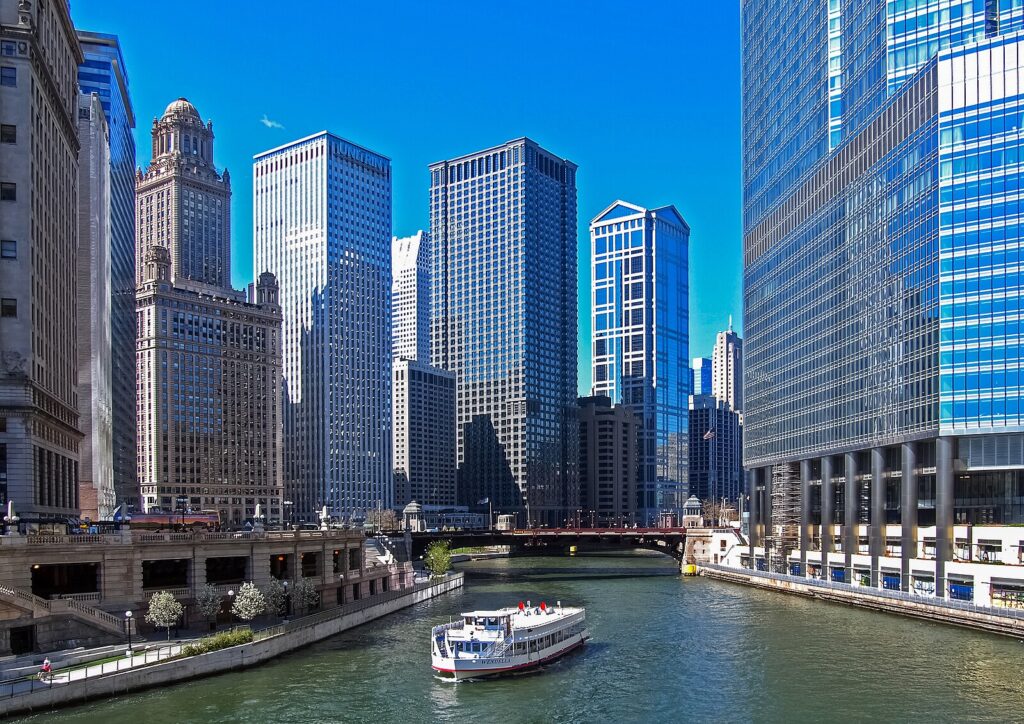
Chicago’s retirees are done with brutal winters that feel like getting stabbed by an icicle on the way to the mailbox. According to a study from Yahoo Finance, the Windy City saw a notable drop in its senior population in the past year. Between property tax hikes in Cook County and heating bills that double as mid-sized mortgages, retirees are craving a climate upgrade—stat!
Cue Phoenix, Arizona, where the monsoon season is a small price to pay for 300+ days of sunshine. Retirees making the move are swapping snow shovels for sun hats and shivering fits for refreshing dips in a backyard pool. Housing prices in Phoenix remain about 20% below L.A. levels, so your retirement nest egg stretches farther—think of all the Southwest road trips or spa days you can book. The city’s growing retiree communities come with social clubs, golf carts as transportation, and wildfire-free air. Plus, with healthcare networks that specialize in geriatric care, you’ll have more yoga classes and fewer shivers in your future.
4. San Francisco

Golden Gate views are beautiful—until you see your bank account balance after property taxes and tech-fueled rent hikes. San Francisco’s fixed-income residents have felt the pinch so hard that a SmartAsset analysis ranks it among the top cities losing retirees to more affordable locales.
Austin, Texas, has swooped in as the Alamo City’s cooler cousin, complete with live music, BBQ joints on every corner, and a cost of living roughly 15% below San Francisco’s. Retirees relocating there are trading in cable car rides for Tuesday-night Blues on the Green concerts—think picnic blankets, local brews, and no muss, no fuss. No state income tax plus friendly property tax rates mean more budget for karaoke nights at the 55+ community center (yes, it’s a thing). Add in world-class medical campuses and a thriving arts scene, and it’s no wonder former San Franciscans are diving headfirst into the Austin lifestyle.
5. Miami
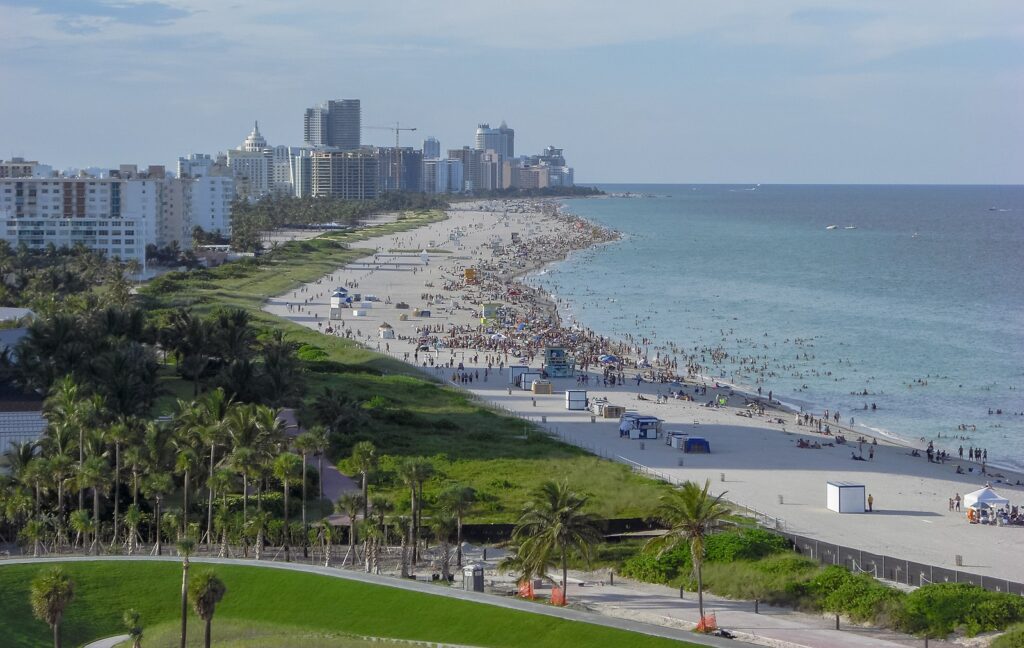
When “cool” became code for “flood insurance nightmare,” even the most stalwart snowbirds started looking elsewhere. Miami’s retirees have taken notice of rising sea levels and skyrocketing homeowners’ insurance, pushing many to seek safer harbors. As reported by KEYT, Miami’s senior population growth has slowed as locals scout for dry land.
Nashville, Tennessee, is emerging as a top contender: 0% state income tax on Social Security benefits and a housing market still friendlier than South Beach condos. Retirees swapping mojitos for sweet tea are settling into neighborhoods where honky-tonk bars double as live music therapy. Healthcare access is solid, with Vanderbilt University Medical Center just a short drive away—goodbye, ambulance-chasing premiums. Plus, if you ever miss the ocean breeze, there’s always the Cumberland River and an uptick of riverside parks for paddle-boarding beginners. It’s like Florida without the hurricanes (most of the time).
6. Philadelphia
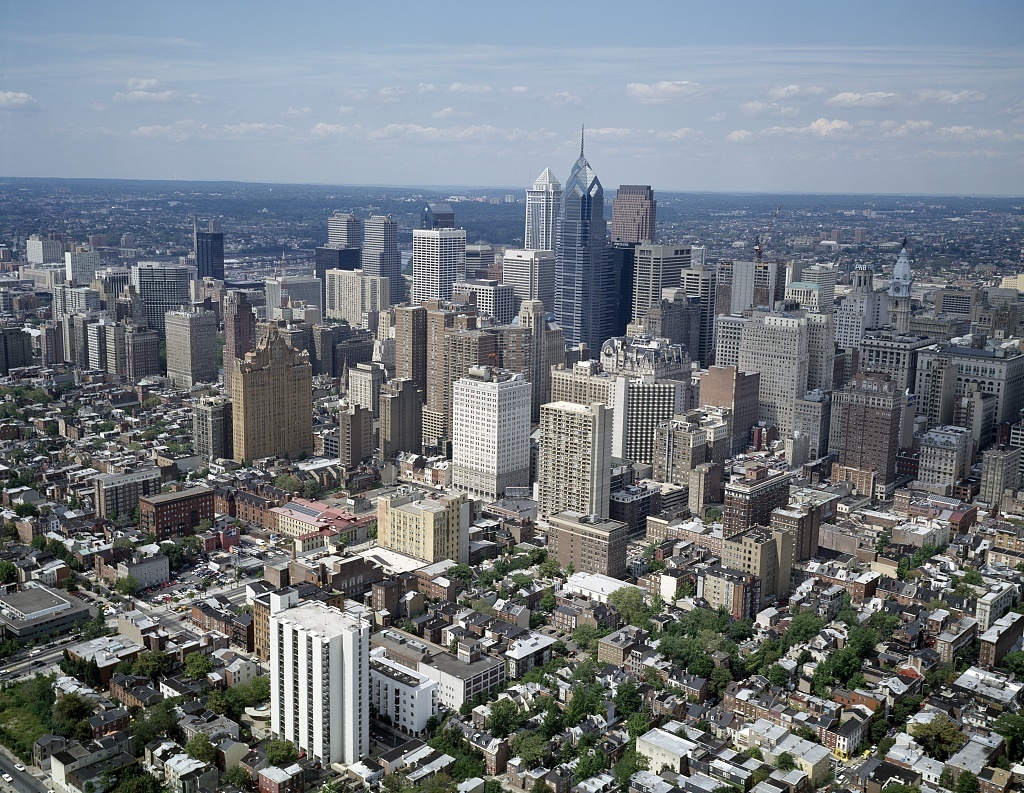
The City of Brotherly Love’s steep property taxes and aging infrastructure have many retirees itching for a fresh start. With rising sewer and school district levies, seniors on fixed incomes are feeling squeezed. Greenville, South Carolina, with its revitalized downtown and lower tax rates, has become a magnet. Retirees here get the charm of cobblestone streets and Southern hospitality without the wallet punch. Weekly farmers’ markets, a thriving arts district, and scenic Blue Ridge Mountain day trips make it feel less like exile and more like a lifelong vacation. And with modern medical centers popping up in downtown Greenville, you get small-town vibes with big-city healthcare clout.
In Greenville, low HOA fees and property taxes keep housing costs in check, letting retirees afford larger homes with yard space for gardening or hosting family cookouts. The local community centers overflow with activities—from quilting circles to tai chi classes—so there’s never a dull moment. Even the public library offers book clubs that meet at local coffee shops rather than fluorescent-lit rooms. And for those who miss Philly’s cheesesteaks, Greenville’s booming food scene includes artisans crafting loaded pimento cheese sandwiches. Plus, proximity to Greenville-Spartanburg International Airport means easy flights for visiting grandkids.
7. Detroit
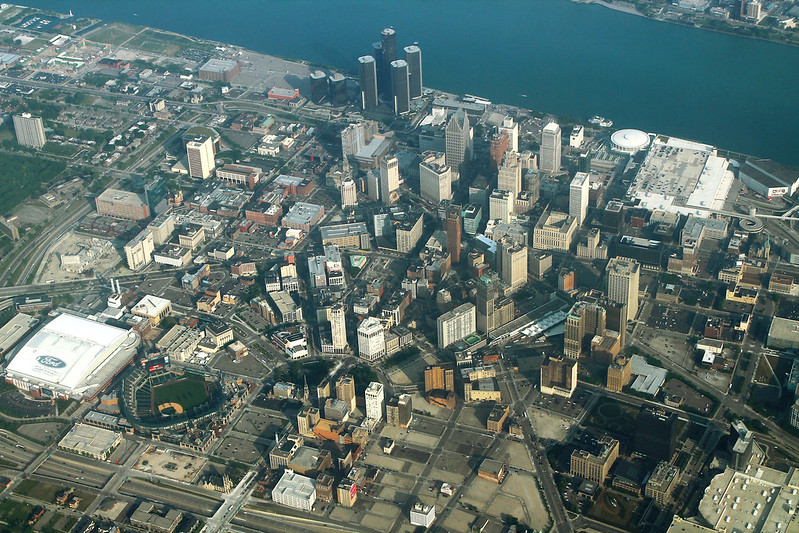
Once the Motor City’s retirement dream, Detroit’s slow economic recovery and concerns over public services have driven seniors to greener pastures. Tampa, Florida—a double whammy of no state income tax and a humid subtropical climate—tops the list for ex-Detroiters. Retirees here find their incomes stretching further, with single-family homes available for half the price of similar sizes back in Michigan.
It’s not just about dollars, though. With year-round golf, beach days, and vibrant retirement communities, retirees are swapping snowblower blues for shuffleboard cues. In Tampa, healthcare systems like Moffitt Cancer Center offer top-tier care, so seniors get both sunlit mornings and expert medical support. Plus, the local senior centers mount themed dance nights—think ’70s disco and tropical luaus—so retirees are never far from a conga line.
8. Cleveland

Cleveland’s harsh winters and stagnating job market have many retirees hopping aboard the exodus train. Asheville, North Carolina, with its temperate four seasons and hip-but-relaxed vibe, has emerged as the go-to. Here, retirees trade snow drifts for scenic hiking trails in the Blue Ridge Mountains, and the city’s famous arts scene means you can swap classical PBS for offbeat craft breweries and gallery strolls.
Asheville’s moderate cost of living also gives seniors wiggle room for that dream pottery class or weekend music festival. Local health systems like Mission Health keep elder care in check, and the city’s walkable downtown means less stress on aging joints. Plus, retiree clubs host regular farm-to-table dinners in restored historic homes—talk about mixing heritage with haute cuisine.
9. Baltimore
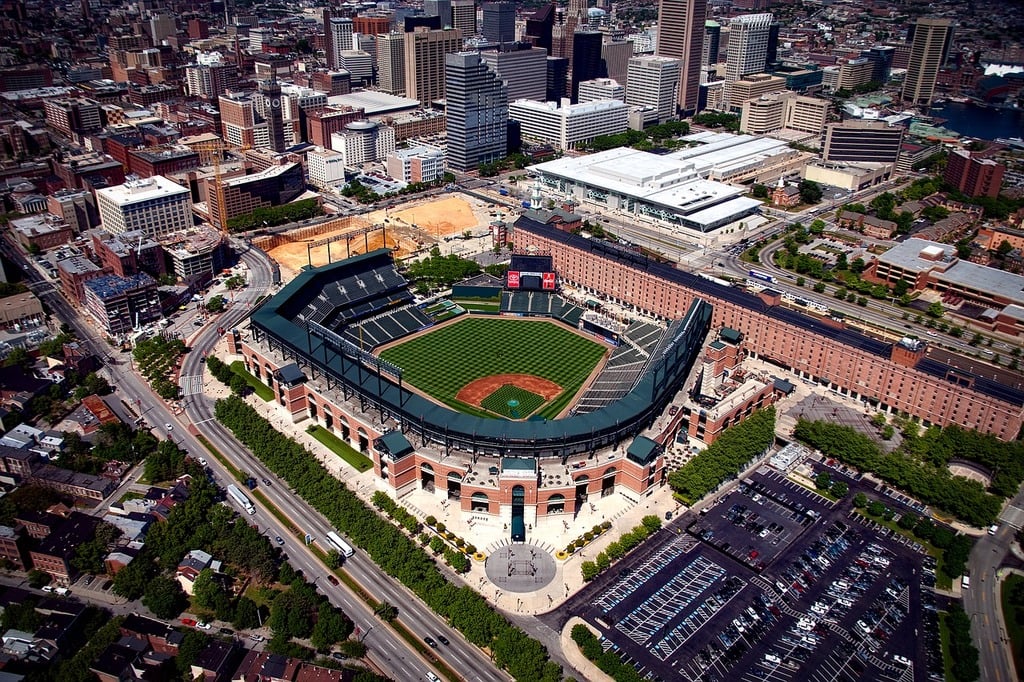
Rising crime perceptions and water bill hikes in Charm City have prompted many Baltimore retirees to seek calmer waters. Richmond, Virginia offers a charming alternative with lower taxes and a historic-district vibe that feels like walking through a history book—minus the noise of a big city. Retirees here enjoy tree-lined streets, art festivals on the canal, and a booming culinary scene that prizes both crab cakes and craft breweries.
Richmond’s affordable housing market and generous tax exemptions for seniors mean those fixed incomes go farther. Senior-friendly transit options and well-funded public libraries add to the appeal, and the local healthcare network (including VCU Health) ensures top-notch care. Monthly historic walking tours double as social mixers, so retirees expand their circles while exploring the city’s storied past.
10. Pittsburgh
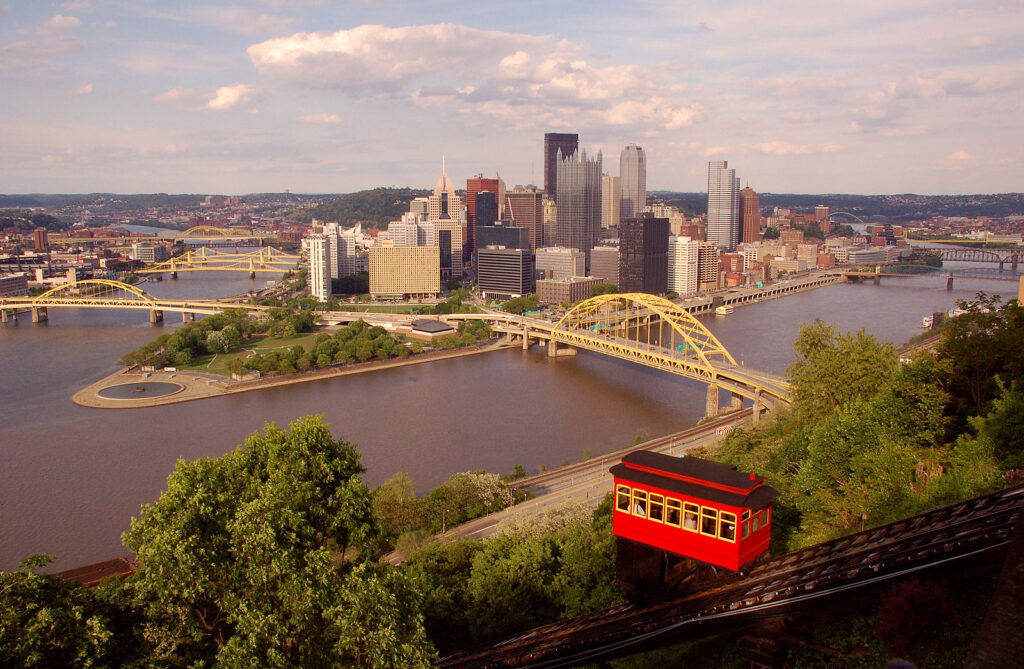
With steel mills shut down and public pensions under strain, Pittsburgh’s older residents are looking elsewhere. Charleston, South Carolina, calls with its coastal charm, pastel-hued houses, and tax breaks tailored for retirees. Here, seniors swap urban grit for leisurely carriage-ride tours, harbor-side seafood feasts, and palm-tree-lined sidewalks.
Housing costs in Charleston remain about 10% below national averages, and South Carolina’s tax code favors retirees with exemptions on Social Security and pension income. The city’s medical hubs like MUSC Health Charleston are big draws, too. Meanwhile, community gardens and historic-plantation golf courses give retirees new hobbies—everything from heritage cooking classes to moss-draped oak photo tours.
11. Boston
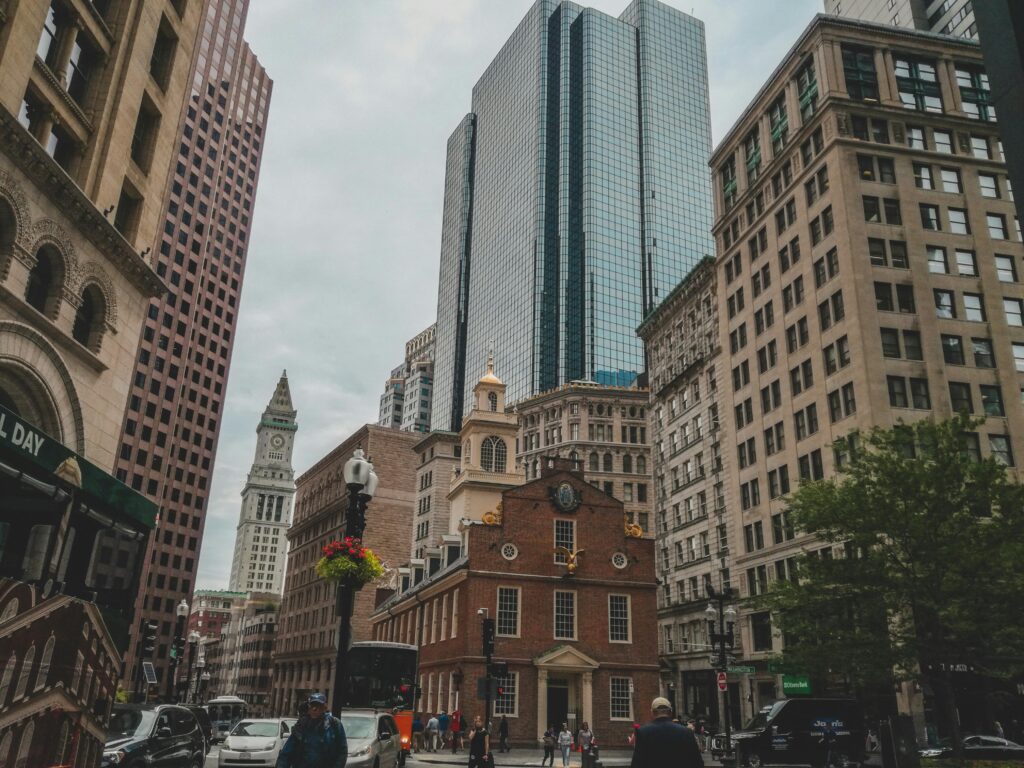
Boston’s skyrocketing housing market and high property taxes have sent many Baby Boomers packing. Boise, Idaho, has quietly become one of the nation’s best-kept secrets for retirees craving outdoor adventure without the Wall Street price tags. In Boise you can swap Fenway Park camaraderie for afternoon hikes up Table Rock and river floats on the Boise River Greenbelt.
Living costs here run about 8% below the U.S. average, giving seniors more wiggle room for art classes at the Boise Art Museum or riverfront brewpub meetups. The city’s St. Luke’s Health System provides top-tier medical care, and the tight-knit community feel makes it easy to find like-minded friends at weekly farmers’ markets.
12. Seattle
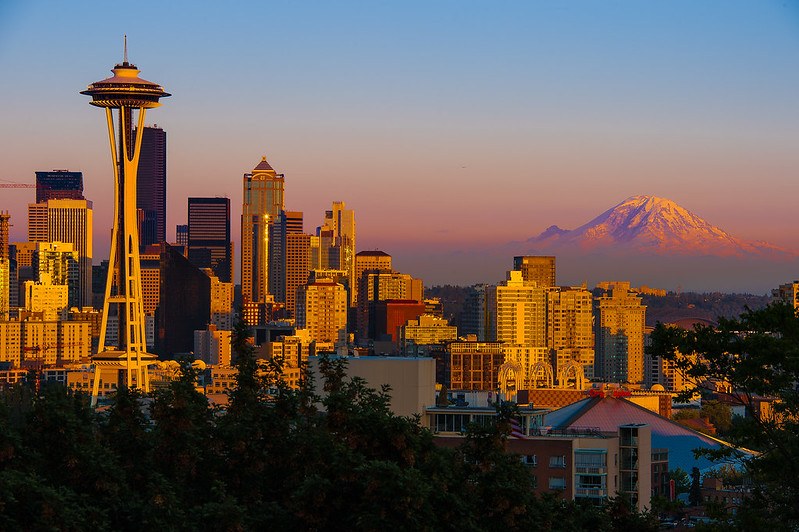
High tech means high rent in Seattle, and with Social Security not adjusting for dramatic housing spikes, retirees are on the move. Tucson, Arizona, with its desert parks and inexpensive real estate, beckons those tired of rainy-day blues. Retirees here can join desert hiking clubs, learn pottery using local clay, or simply lounge under cacti scenery.
Tucson’s living costs are over 12% lower than Seattle’s, and Arizona’s lack of state tax on Social Security income is a major plus. University of Arizona Health Sciences keeps medical care top-notch, and local senior centers host everything from stargazing nights at Kitt Peak to Sonoran Desert cooking workshops.
13. Houston
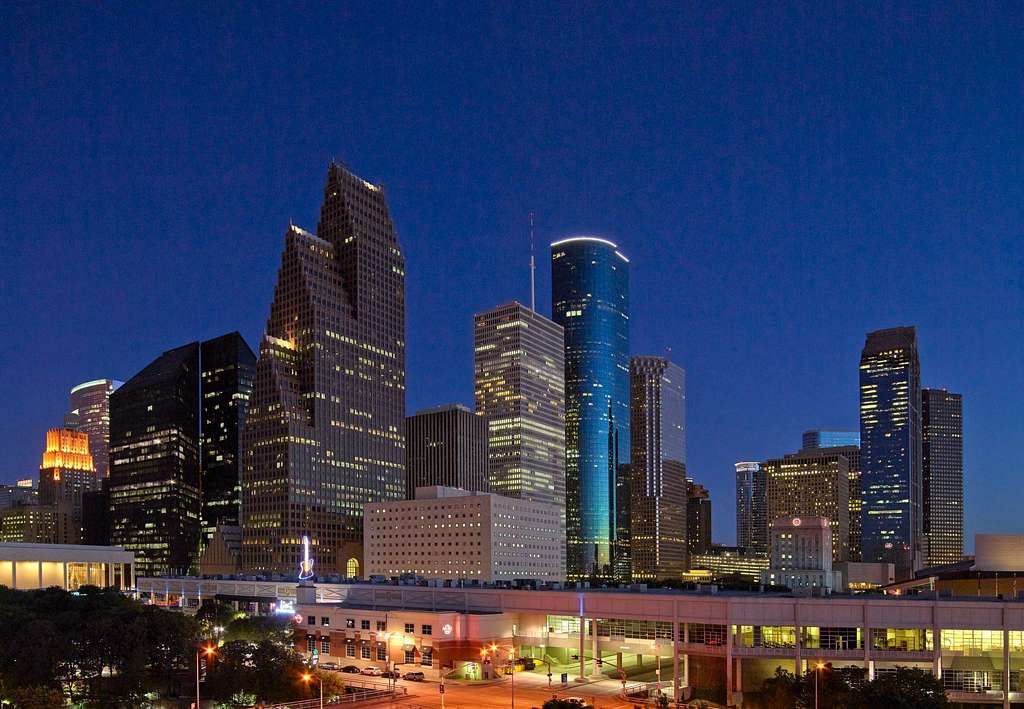
Houston’s property taxes and heavy humidity have some retirees trading bayous for the Rocky Mountain air. Colorado Springs, Colorado, is winning hearts with its Pikes Peak views and dry climate that’s easy on arthritic joints. Retirees here find prices about 5% below national average and a slew of outdoor activities—from scenic train rides to garden shows at the Cheyenne Mountain Zoo.
State tax exemptions on pension and retirement accounts add to the financial allure, and UCHealth’s Memorial Hospital provides advanced geriatric care. Weekly potluck picnics at Garden of the Gods Park are social highlights, making it easy to feel part of the community.
14. Atlanta

Atlanta’s traffic nightmares and rising living costs have steered many retirees toward Greenville, South Carolina (yes, again—the South’s secret indie gem). But equally, Chattanooga, Tennessee, has been quietly winning over 55+ folks who crave small-town coziness with big-city amenities.
In Chattanooga, the cost of living sits nearly 10% below Atlanta’s, and the Tennessee tax code gives retirees breathing room by taxing only dividend and interest income. The city’s Scenic City designation means creekside trails and hilltop views are an everyday perk. Erlanger Health System’s senior programs round out the package with fitness classes tailored to older adults.
15. Portland, Oregon
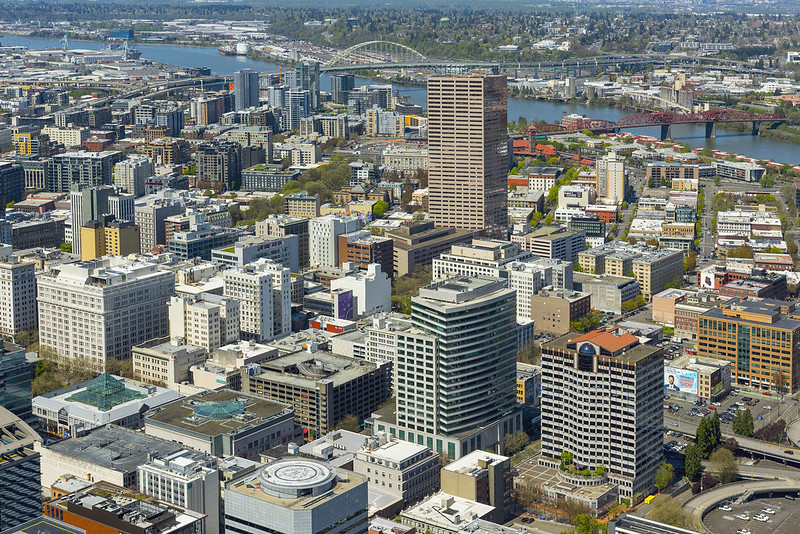
Once a hipster haven with backyard chickens and third-wave coffee, Portland is seeing its retirees pack up and peace out. Between rising housing costs, spiking property taxes, and concerns over public safety in the downtown core, the Rose City isn’t quite the chill oasis it once was. For folks on fixed incomes, the financial pressure is real—and so is the rainy-season cabin fever. Seniors who once loved the city’s quirky charm are now craving sunshine, affordability, and a bit more breathing room. Enter St. George, Utah—a desert gem that’s quietly turning into a retirement hotspot.
St. George brings a totally different vibe: endless red rock views, a dry climate that’s basically arthritis’s worst enemy, and a cost of living that doesn’t feel like highway robbery. Retirees here rave about the active lifestyle—think sunrise hikes, pickleball tournaments, and golf courses that look like postcard backdrops. There’s also a strong sense of community, with local events like art walks and bluegrass nights that make it easy to plug in and feel at home. Housing is refreshingly affordable (especially compared to Portland), and Utah’s tax policies are kind to Social Security income. Bonus: Intermountain Healthcare has a major presence in the region, so top-notch medical care isn’t far away. Basically, if Portland’s vibe got too expensive and too damp, St. George is the sunny rebound relationship you totally deserve.
This article is for informational purposes only and should not be construed as financial advice. Consult a financial professional before making investment or other financial decisions. The author and publisher make no warranties of any kind.









